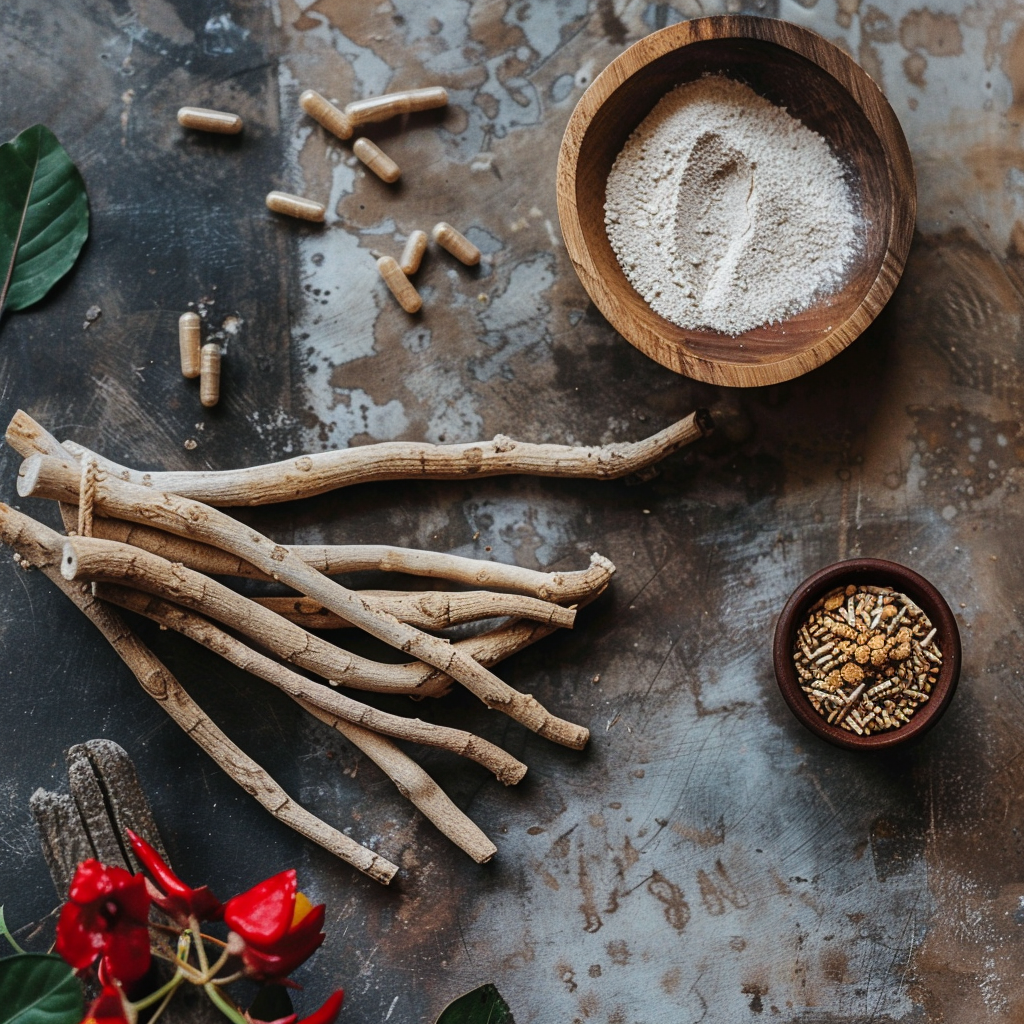
Ashwagandha, also known as Indian ginseng, is a medicinal herb that has been used in Ayurvedic traditional medicine for over 6,000 years! In case you're2 wondering, the pronunciation of "Ashwagandha" can be broken down into three syllables, ash: pronounced like the English word "ash", wa: pronounced as "wuh", gandha: pronounced as "gun-dha!"
Its botanical name, Withania somnifera, refers to its rejuvenating effects. Read on to learn all about Ashwagandha's health benefits, potential side effects, and how to utilize it effectively within a skincare routine.
Ashwagandha, an evergreen shrub found in parts of Asia and Africa, is most recognized for its use in managing stress. The chemicals contained in Ashwagandha extract may exhibit properties that soothe the brain, decreases inflammation, calms the central nervous system, support rheumatoid arthritis lower cortisol levels and anxiety symptoms reduce blood pressure, and modifies the immune system's responses.
Traditionally, ashwagandha's reputation as an adaptogen has led to its use for a wide array of conditions connected to stress. These adaptogens are thought to aid the body in combating both physical and mental stressors. Some common applications for ashwagandha include treatments for sleep quality, physical performance, blood sugar, aging, anxiety, and numerous other ailments.
In the context of Ayurveda, this herb is categorized into two main groups: Balya, which relates to strengthening, and Bhruhaniya, connected to nourishing. Ashwagandha's ability to balance Vata helps reduce elevated stress levels, while its aphrodisiac qualities restore vitality and rejuvenate strength. Recognized as a top-tier adaptogenic herb, Ashwagandha also serves as a nourishing superfood, providing essential benefits for both skin and hair.
Ashwagandha is a plant, and its roots and berries are what is used. The ingredients or compounds found in the various mg of ashwagandha the plant that is typically cited for its health benefits include:
Withanolides: These are the primary bioactive compounds in ashwagandha. Withanolides are a group of naturally occurring steroids that are responsible for many of the plant's medicinal properties, such as anti-inflammatory and anti-stress effects.
Alkaloids: Some of the alkaloids found in ashwagandha include anferine, ashwagandhine, cuscohygrine, and tropine. These contribute to various physiological effects on the nervous system.
Saponins: These compounds may have antioxidant and immune-boosting properties.
Amino Acids: Ashwagandha contains various amino acids that are essential for overall health and well-being.
Fatty Acids: These include oleic acid and linoleic acid, which are good for overall health.
Choline: An essential nutrient that has various benefits, including supporting cellular growth and metabolism.
Sugars: Such as glucose, fructose, and sucrose, which can be found in the plant.
Iron: The plant is also known to contain iron, beneficial for those with iron-deficiency issues.
Other Minerals and Vitamins: Ashwagandha contains trace amounts of other essential vitamins and minerals.
Phytosterols: These plant-based compounds have a structure similar to cholesterol and have been shown to reduce LDL cholesterol levels in the blood.

Ashwagandha promotes the generation of the skin's essential natural oils, contributing to a reduction in acne by maintaining the skin in a soothed, clarified, and replenished state. Recognized for its anti-aging attributes, this powerful herb also aids in preserving the skin's elasticity, helping to keep it youthful and vibrant.
Ashwagandha boasts potent antimicrobial, antioxidant, and anti-inflammatory attributes that actively safeguard and heal the skin from various infections, damages, and reactions.
Suitable for all skin types, this versatile herb is enriched with bio-active compounds like withanolides, alkaloids, and saponins. These elements work in synergy to offer a comprehensive skin care experience, providing deep cleansing, moisturizing, and calming effects on your skin.
Ashwagandha is renowned for its potential benefits for skin, physical and mental health too, thanks to several properties and compounds found within the plant.
Here's why it's considered good for the skin:
Anti-Inflammatory Properties: The withanolides in Ashwagandha have anti-inflammatory effects, reducing redness and swelling. This can calm irritable skin including clearing off conditions like eczema and rosacea.
Antioxidant Protection: The antioxidants present in Ashwagandha help combat free radicals, which can cause premature aging. By neutralizing these free radicals, the skin's appearance may be improved, looking more youthful and vibrant.
Stress Reduction: Ashwagandha is known for its adaptogenic properties, which aid in regulating stress hormones like cortisol. Stress can manifest on the skin in various ways, including acne and dullness. By managing stress, taking Ashwagandha, may contribute to clearer, healthier-looking skin.
Hydration and Nourishment: Topical products containing Ashwagandha can provide moisture and nourishment, helping to maintain the skin's suppleness and prevent dryness.
Hormonal Balance: Ashwagandha may help in balancing hormones, which can control hormonal acne. Hormonal imbalances are often linked to skin problems, and the benefits of Ashwagandha's ability to moderate these imbalances can lead to clearer skin.
Supporting Collagen Production: Some research suggests that Ashwagandha may boost collagen production, improving skin elasticity and reducing the appearance of fine lines and wrinkles.
Ashwagandha can be found in skin care products or ashwagandha supplements are available, but it's advisable to consult with a dermatologist or healthcare provider to understand how it can best fit your specific skin care needs and ensure compatibility with your skin type and condition.
Ashwagandha can be applied both topically and orally, depending on your preference and needs:
Topical Application of Ashwagandha:
Face Pack Method:
Create a face pack by mixing Ashwagandha powder with the desired amount of water.
Apply this paste to your skin for cleansing and nourishing effects and reducing stress.
Herbal Mixture Method:
Combine one teaspoon of ginger powder, two teaspoons of ashwagandha powder, and one teaspoon of dried lemon peel powder.
Mix these ingredients with a cup of water and heat until boiling.
Allow the mixture to cool down before applying it to the skin. This blend offers a refreshing and revitalizing skin treatment.
Ashwagandha Oil Method:
Ashwagandha oil, with its myriad benefits ranging from stress reduction to improved cognitive function, is trusted by many women.
For topical use, mix Ashwagandha oil with a carrier oil like coconut or almond oil.
Gently apply this mixture to the skin, enjoying its calming and enriching properties.
Oral Consumption of Ashwagandha:
Ghee and Honey Mix:
Combine half a teaspoon of ashwagandha powder with a small amount of ghee and honey.
Consume this mixture twice a day for overall well-being.
Warm Milk Blend:
Mix half a teaspoon of ashwagandha powder with a glass of warm milk.
Drinking this before bedtime can be soothing and healthful.
These various methods allow you to harness the healing and nourishing properties and benefits of ashwagandha, both internally and externally. Whether you're looking for a calming skin treatment or a rejuvenating daily supplement, ashwagandha's versatility makes it a valuable addition to your wellness routine.
As purveyors of all things natural, we of course had to harness the powers of ashwagandha root extract for our line of skin care products—so everyone can accesss the help of ashwagandha. Here are some of our products that contiain it!
The Calming Mask by Shankara is an algae-aloe gel mask that provides instant, cooling relief to soothe and calm sensitive skin. Designed to cater to all skin types, it is infused with blue chamomile and cucumber that help ease temporary redness and irritation. One of the notable ingredients in this calming mask is Ashwagandha, a powerful herb known for its anti-inflammatory and antioxidant properties. Along with the nourishing and hydrating effects of coconut oil, the addition of Ashwagandha makes this mask an excellent choice for anyone looking to rejuvenate their skin while alleviating stress and discomfort.
The Reviving Body Wash by Shankara is a refreshing blend infused with nutrient-rich herbs and invigorating Kapha pacifying aromas. It's crafted to uplift the senses while providing hydrating nourishment, and it naturally cleanses the skin. Among the rejuvenating ingredients is Ashwagandha, a celebrated herb known for its healing and revitalizing properties. This body wash not only revitalizes the body but also connects with the traditional Ayurvedic wisdom, offering a holistic approach to skin care.
The Anti-Age Serum by Shankara is a 100% active serum that is meticulously crafted to deeply moisturize and rejuvenate your skin. Infused with Ashwagandha, this serum supports natural skin renewal and offers profound hydration and oxygenation. By significantly reducing the appearance of fine lines and wrinkles, it promotes a youthful and radiant complexion, aligning with the ancient wisdom, ayurvedic herbs, and modern skincare needs. What more could you need?
The Rich Repair Treatment Oil by Shankara is an exquisite blend formulated to restore and maintain the skin's natural balance. Rich in nutrients and antioxidants, including Ashwagandha, this oil provides deep moisturization, nourishment, and a warming sensation. It's designed to be both oxygenating and non-comedogenic, enhancing the skin's vitality without clogging pores. The inclusion of Ashwagandha adds an extra layer of rejuvenation, making it an essential part of a holistic skincare routine!
Ashwagandha offers numerous potential health benefits, particularly for the skin. Its anti-inflammatory, antioxidant, and stress-reducing properties make it an attractive addition to any skincare routine. Known for its rejuvenating effects, Ashwagandha can be used both topically and as a supplement.
With proper guidance from skincare professionals, the strategic incorporation of this powerful herb can lead to healthier, more radiant skin. Its use in contemporary products symbolizes a bridge between traditional wisdom and modern skincare practices, exemplifying a holistic approach to skin health and overall wellness.




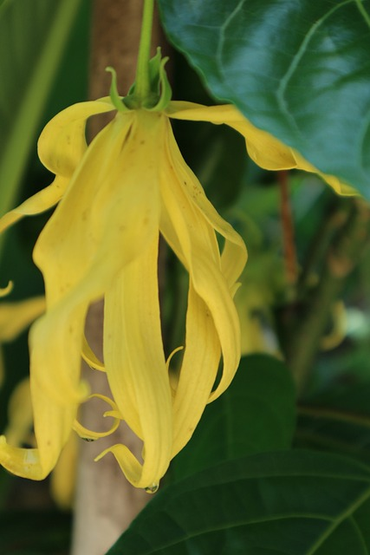

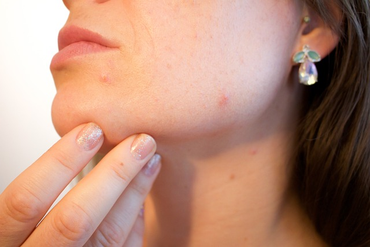


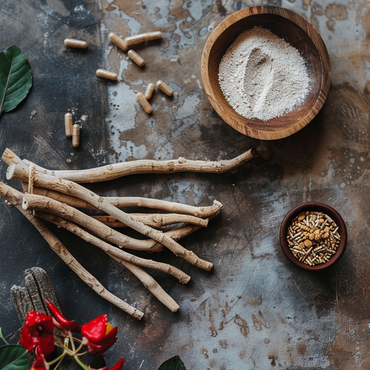
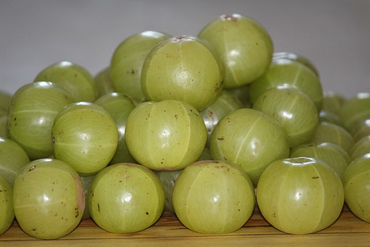
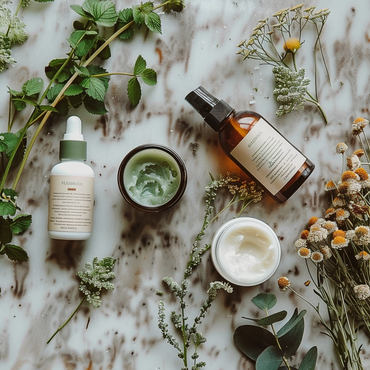
comments (0)